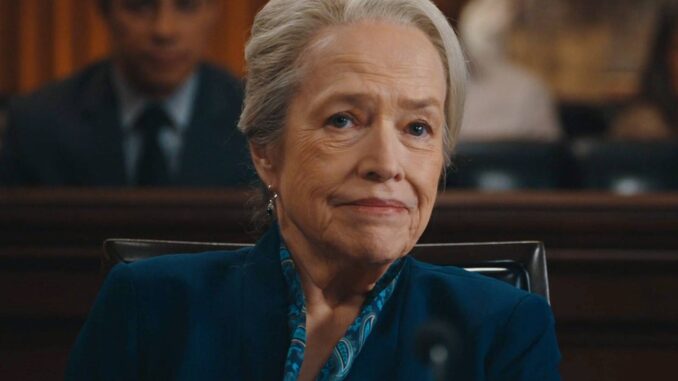
The Pawnshop, the Lawyer, and the Price of a Start: Billy Bob Thornton and the Anatomy of a First Break
Billy Bob Thornton, the gravel-voiced raconteur, the Oscar-winning screenwriter, the man who once carried Angelina Jolie’s blood in a vial, seems an unlikely candidate for a nostalgic reminiscence on a bit role in a legal drama. Yet, recent revelations about his paycheck for a single appearance as a seedy pawnshop owner on the long-running series Matlock have provided a fascinating glimpse into the early career of an actor, the economics of television production, and the intangible, yet priceless, value of a first break.
The anecdote itself is straightforward. Thornton, reflecting on his pre-stardom days, casually dropped the bomb that he was paid a paltry sum – the specific amount varies slightly depending on the source, but hovers around a few hundred dollars – for his appearance on Matlock episode MD07. He was, in his own words, a struggling actor in Hollywood, scraping by, desperate for any role that paid the bills. This meager paycheck, while perhaps insulting to the Thornton of today, was a lifeline back then.
The initial reaction to this revelation is often one of surprise. Matlock, after all, was a ratings juggernaut, a comfort-food procedural enjoyed by millions. Surely, a show with such widespread appeal had deeper pockets? However, understanding the context of television production in the late 80s and early 90s sheds light on the situation. Roles like Thornton’s were often classified as “day player” parts, affording little in the way of significant compensation. Budgets were tighter, and actors were plentiful. To be cast, even in a fleeting role, was a victory in itself.
But the story of Thornton’s Matlock paycheck isn’t just about financial realities. It speaks to the broader struggle of aspiring actors in Hollywood. Imagine the grind of auditions, the rejections, the endless hustling for any opportunity. Thornton, before the critical acclaim of Sling Blade and the blockbuster success of Armageddon, was just another hopeful in a sea of dreamers. His Matlock gig, however insignificant it might seem in retrospect, was a validation, a confirmation that someone, somewhere, saw something worthwhile in his talent.
Furthermore, the experience itself, however brief, contributed to Thornton’s professional development. He stood on a set, interacted with established actors (even if he didn’t share scenes with Andy Griffith himself), and learned the nuances of working on a professional television production. He honed his craft, even in the periphery, absorbing the rhythms and demands of the industry. This on-the-job training, arguably, was worth far more than the few hundred dollars he received.
Moreover, the Matlock appearance served as a stepping stone, a resume builder. It gave him something to show for his efforts, a tangible credit that could potentially open doors to future auditions. In the brutal landscape of Hollywood, every small victory counts. Every line delivered, every scene filmed, adds to the actor’s repertoire and increases their chances of landing the next role.
Ultimately, Billy Bob Thornton’s Matlock anecdote is a testament to the resilience and perseverance required to succeed in a competitive industry. It highlights the importance of small beginnings, the value of experience, and the often-overlooked sacrifices actors make in pursuit of their dreams. While the financial reward may have been minimal, the Matlock role provided Thornton with something far more valuable: a chance. A chance to learn, a chance to grow, and a chance to prove that he had what it takes to make it in Hollywood. The pawnshop owner may have been a fleeting character, but the lessons learned on that Matlock set undoubtedly played a part in shaping the Oscar-winning artist Billy Bob Thornton would become. It’s a reminder that even the smallest roles can have a profound impact on the trajectory of a career, and that sometimes, the price of a start is simply the willingness to show up and deliver.
